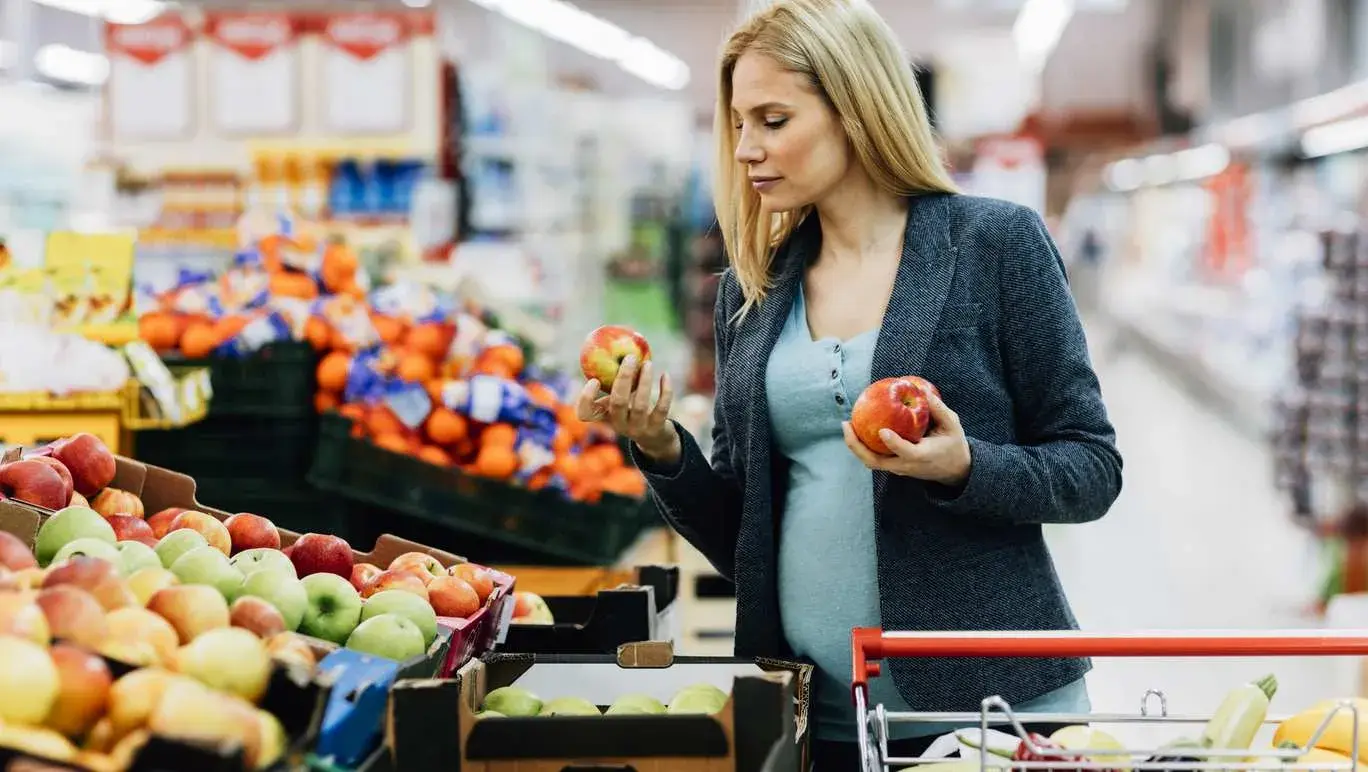Foods for fertility: How your diet can support ovulation

Looking to support your fertility? It all starts with ovulation—one of the most important phases of your menstrual cycle when a healthy, mature egg is released, ready to be fertilised. But did you know that what you eat can play a big role in supporting this process? By nourishing your body with the right foods, you can help regulate your cycle and optimise your chances of conceiving. To help make things simple, we break down the key ovulation-supporting foods to add to your plate and why they’re important.
Key vitamins and minerals for supporting ovulation
Folate (Vitamin B9)
Folate is a powerhouse when it comes to reproductive health, playing a key role in cell division and DNA synthesis. Getting enough folate before conception is not just important—it’s essential for supporting your baby’s development right from the start. In fact, one study has shown that good levels of folate and vitamin B12 are linked to higher pregnancy rates in women undergoing IVF. So, if you’re looking to boost your intake, reach for folate-rich foods like leafy greens, beans, egg yolk, and liver.
Vitamin D
Vitamin D isn’t just great for your bones—it plays a big role in reproductive health too, with receptors in key organs like the ovaries. It’s got some serious anti-inflammatory and immune-boosting powers, and a lack of vitamin D has been linked to conditions like PCOS and endometriosis, which can throw ovulation and fertility out of whack. The good news? Studies show that boosting your vitamin D levels can help improve ovulation rates. While sunshine is the best way to top up, you can also get your fix from oily fish, egg yolks, and dairy.
Zinc
Zinc is a bit of a superstar when it comes to hormone production and keeping your menstrual cycle on track. It helps with healthy follicle development, making sure a strong, viable egg is released during ovulation. Without enough zinc, ovulation can become irregular, which can affect fertility. Plus, zinc is a great antioxidant, protecting your reproductive system from oxidative stress. To keep your zinc levels up, load up on oysters, pumpkin seeds, lentils, and red meat.
Selenium
Selenium might not get as much attention, but it’s a game-changer for thyroid health, which plays a big role in keeping ovulation regular. It helps convert thyroid hormone T4 into its active form, T3, which is key for a balanced cycle. Without enough selenium, conditions like hypothyroidism can mess with ovulation and affect fertility. Plus, selenium protects your ovaries from oxidative damage, keeping them in top shape. You can boost your selenium by snacking on Brazil nuts or adding more tuna, sardines, and shellfish to your meals.
Best foods to support healthy ovulation
Dark leafy greens (spinach, kale, silverbeet)
Dark leafy greens are the ultimate nutrient powerhouses, packed with folate, iron, calcium, and magnesium—all key players for healthy hormone production and ovulation. Plus, their high antioxidant content helps shield your body’s cells from oxidative stress, which can harm egg quality and fertility. So, whether it’s spinach, kale, or rocket, these greens are an easy, everyday way to nourish your reproductive health.
Fatty fish (salmon, mackerel, sardines)
Fatty fish like salmon and mackerel are swimming with omega-3 fatty acids, which work wonders for reproductive health by reducing inflammation and boosting blood flow to your reproductive organs. Research also shows omega-3s help keep ovulation regular. And as a bonus, these fishy favourites are packed with vitamin D, another key player in supporting healthy ovulation.
Berries (blueberries, strawberries, raspberries)
Berries are bursting with antioxidants like vitamin C, quercetin, and resveratrol, all working together to fight off oxidative stress that can harm reproductive cells, and contribute to hormonal imbalances and infertility. Following diets like the Mediterranean diet, packed with antioxidant-rich foods like berries, has been shown to support fertility and support reproductive health.
Eggs
Eggs are a nutritional goldmine, packed with protein, vitamins A, D, E, and iron—all crucial players in supporting reproductive health. Vitamins A and E act as powerful antioxidants, helping to fight off oxidative stress that can disrupt fertility. In fact, studies suggest that oxidative stress is linked to anovulatory infertility (AKA you're not ovulating or releasing an egg), making these nutrient-rich gems an excellent addition to your diet!
Nuts and seeds (almonds, walnuts, flaxseeds, pumpkin seeds)
Nuts and seeds are your fertility allies, packed with essential fatty acids, magnesium, zinc, and vitamin E—all vital for hormone production, ovarian function, and regular ovulation. Vitamin E, in particular, shines as a powerful antioxidant, guarding your precious eggs from oxidative damage and supporting overall fertility.
And when you're shopping for your favourite nuts and seeds, consider going organic whenever possible. Organic produce helps reduce your exposure to endocrine-disrupting chemicals that can interfere with fertility and lengthen the time to conception.
The role of healthy fats in supporting ovulation
The quality of fats in your diet matters when it comes to fertility. Omega-3 fatty acids are like the cheerleaders of reproductive health—championing fertility with their anti-inflammatory properties. Research shows that indulging in omega-3s from oily fish or through supplements can work wonders by enhancing follicle maturation, promoting regular ovulation, and supporting progesterone production—essential elements for supporting your fertility journey.
But that's not all. Monounsaturated fats, the healthy kind found in extra virgin olive oil, avocados, nuts, and seeds, are also fabulous for your fertility. These heart-healthy fats can help reduce ovulatory disorders and improve your chances of conceiving. Plus, they play a vital role in helping your body absorb fat-soluble vitamins like D and E, which are crucial for ovulation. So, adding these nourishing fats to your plate is a delicious step toward optimising your reproductive health.
Hydration and its impact on reproductive health
Don’t underestimate the power of hydration—it's a vital player in your reproductive health game. Staying hydrated goes beyond just counting how many glasses of water you drink; it also involves balancing those important electrolytes. Proper hydration supports the production of cervical mucus, which is essential for helping sperm navigate through the female reproductive tract to meet that precious egg.
But that’s not all—keeping your body well-hydrated also helps regulate hormone levels, boosts blood circulation, and maintains healthy ovarian function. So, raise a glass to hydration and give your reproductive health the support it needs to thrive.
Summary
Supporting your fertility starts with a nutrient-dense diet, and it’s all about what you put on your plate! Make it a priority to fill your meals with foods rich in essential vitamins and minerals like folate, vitamin D, zinc, and selenium. Don’t forget the power of antioxidants, healthy fats, and, of course, plenty of water.
By embracing these fertility-enhancing foods, you’ll not only improve hormone balance but also promote regular ovulation, giving your chances of conception a solid boost. Nourishing your body with the right nutrients sets the stage for a flourishing environment for ovulation and can make all the difference in your fertility journey.
Related articles:
Reviewed by Healthylife health experts December 2024.
This article is for informational purposes only and does not provide medical advice, diagnosis, or treatment. Any information published on this website or by this brand is not intended as a substitute for medical advice. If you have any concerns or questions about your health you should consult with a health professional.
